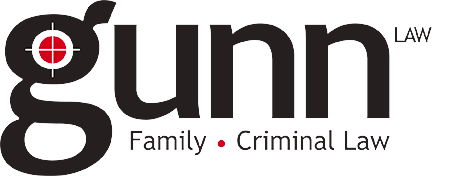Impaired Driving Reform: What New Policing Rules Means for Drivers
Effective March 10, 2025, drivers in Strathcona County, Alberta may face significant legal consequences if they are stopped for a traffic violation and are found to be impaired. Under newly expanded enforcement powers, Community Peace Officers (CPOs) now have the authority to request roadside breath samples during lawful traffic stops. This development is part of a broader shift in how Alberta handles impaired driving, driven by its focus on administrative rather than criminal penalties.
While the Alberta Government ponders the creation of its own police force, over the last 18 months, municipalities such as Strathcona County have been increasingly employing sheriffs and peace officers to take over responsibilities once the exclusive domain of fully trained police officers.
Why These Changes Were Necessary
These changes are part of a response to the Alberta Court of Appeal’s ruling that automatic licence suspensions, issued prior to any formal conviction, violated Section 11(d) of the Canadian Charter of Rights and Freedoms — the right to be presumed innocent until proven guilty. The court struck down parts of Alberta’s Traffic Safety Act, compelling the provincial government to restructure its approach. In lieu of appealing the decision, Alberta introduced legislation that reframes impaired driving consequences under an administrative framework, reducing reliance on criminal court proceedings while still attempting to ensure public safety.
New Enforcement Powers for Community Peace Officers
Although police officers have, since 2018, had the power to demand a breath sample upon stopping a driver for any reason, Albertans need to get ready for CPOs making those same requests. Some CPOs who stop drivers for valid traffic reasons — such as speeding, careless driving, or malfunctioning brake lights — are now authorized to request breath samples using Approved Screening Devices. This procedural change aligns the authority of municipal enforcement officers with those of the RCMP and provincial sheriffs. Importantly, these breath tests are not criminal accusations, but preventive measures designed to detect and deter impaired driving.
Immediate Roadside Sanctions (IRS)
When a breath test indicates a prohibited blood alcohol level, Immediate Roadside Sanctions (IRS) are applied on the spot. These are administrative penalties and may include:
- Immediate suspension of the driver’s licence
- Impoundment of the vehicle
- Monetary fines
Mandatory education programs such as “Planning Ahead” or “Impact”
Drivers issued an IRS receive a Notice of Administrative Penalty (NAP) outlining all sanctions, including length of suspension, impound duration, and total fines. If an RCMP officer issues the IRS, the driver may, in addition to the issuance of the NAP, also be charged under the Criminal Code of Canada, depending on the circumstances. In Alberta, criminal charges are not normally laid unless the person has previous impaired driving convictions, or there was an accident resulting in bodily harm or death. For drivers stopped for the first time for an alcohol-related offence, normally the police proceed purely administratively.
The Role of the Alberta Government in Decriminalization
One of the most notable aspects of the Alberta Government’s approach is the formal shift toward administrative justice. The law grants discretion to law enforcement to determine whether a case should remain within the IRS framework or proceed to criminal prosecution. For many first-time offenders, this offers an opportunity to avoid a criminal record. However, with the disappearance of criminal charges came too the disappearance of many of the procedural protections associated with criminal charges, such as the right to full disclosure and the right to a trial. It is imperative that drivers understand their rights and obligations under the new system.
Ignition Interlock Program
A central feature of Alberta’s impaired driving response is the Ignition Interlock Program. Drivers whose licences are suspended under IRS may be eligible for earlier reinstatement if they agree to install an ignition interlock device in their vehicle. This device requires a clean breath sample to start the engine, and the driver must both blow and hum into the device at regular intervals while operating the vehicle.
Drivers may only apply for the Ignition Interlock program three months after having received the NAP. The first three months after having received the NAP the suspension is absolute. Participation in the Ignition Interlock Program is not mandatory. However, if one does not participate, the driver is simply suspended for the remaining 12-month, 36-month or lifetime suspension (depending on how many previous occurrences the driver has had).
What Drivers Should Know
Drivers should be aware that failing or refusing to provide a breath sample during a lawful stop also carries serious administrative consequences. These include significant fines, extended suspensions, and increased insurance premiums. Moreover, SafeRoads Alberta, the independent adjudicative body overseeing IRS disputes, plays a central role in handling appeals and processing documentation via its online portal.
Understanding how to navigate this portal, submit documentation, and potentially contest a Notice of Administrative Penalty is essential for those affected. Legal counsel experienced in SafeRoads proceedings can help drivers protect their rights under this evolving regulatory environment. For more information, please listen to our podcast series, Legal Eyes, particularly the 4-part series on “How to Run and Hopefully Win Your IRS”.
Although the new approach taken by the Alberta Government does not eliminate the possibility of criminal charges in all impaired driving cases, it represents a strategic shift in Alberta’s road safety enforcement. By emphasizing swift administrative action and allowing frontline enforcement officers to play a greater role, the legislation aims to reduce impaired driving without overburdening the courts. However, the implications for drivers are serious and far-reaching. Staying informed and seeking legal guidance when needed is more critical than ever.
Download Your Free SafeRoads Alberta Guide: Know Your Rights and Options
Facing an Immediate Roadside Sanction (IRS)? Learn how to navigate the SafeRoads Alberta system, dispute penalties, and protect your driving record. Download our comprehensive guide now.
